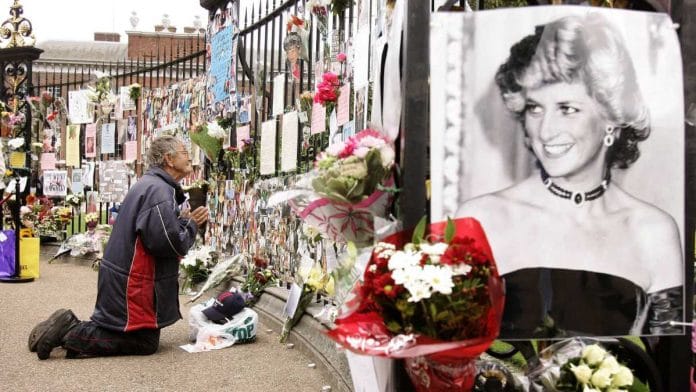New Delhi: The infamous 1995 interview of Princess Diana by Martin Bashir for the BBC has only achieved more notoriety, with an inquiry determining that Bashir had secured the interaction by “deceitful means“.
The interview in question is by far the most explosive television interview in the history of the British monarchy, and perhaps even the BBC. In it, Princess Diana had famously revealed that there were “three people” in her marriage to Prince Charles, referring to Camilla Parker Bowles who is now married to the prince, the heir to the throne.
The inquiry was set up in November 2020 by the BBC and headed by former senior judge John Dyson after Diana’s brother Earl Spencer alleged that he had been tricked into introducing her to Bashir.
Following the findings of the inquiry, Diana’s children Prince William and Prince Harry hit out at BBC in separate statements, and blamed the interview for damaging their parents’ relationship.
From the announcement of her engagement to Prince Charles to even after their divorce, Diana was under constant media glare. In 1997, she died in a car crash while being followed by paparazzi. She was 36 years old.
Also read: Diana-mania gets a new Gen-Z makeover. Netflix is cashing in
What the inquiry found
The inquiry revealed that Bashir had shown fake bank statements suggesting that Diana was being bugged by the security services and that two senior aides were being paid to provide information about her.
According to a Reuters report, the inquiry report stated: “Mr Bashir deceived and induced him to arrange a meeting with Princess Diana … Mr Bashir acted inappropriately and in serious breach of the 1993 edition of the Producers’ Guidelines on straight dealing.”
The report also noted that Bashir repeatedly lied to his bosses about how the interview was obtained, the report said. As questions continued, BBC managers failed to scrutinise his version of events properly and covered up facts about how Bashir had secured the interview.
Bashir resigned from the BBC earlier this month, just before the inquiry report was to be published. He apologised for the fake documents, but said he did not believe that that was what prompted Diana to give the interview. The report included a handwritten note from Diana to Bashir saying that she had no regrets.
The inquiry concluded: “By his deceitful behaviour … Mr Bashir succeeded in engineering the meeting that led to the interview … But it is important to add that Princess Diana would probably have agreed to be interviewed.”
“Without justification, the BBC fell short of the high standards of integrity and transparency which are its hallmark,” it added.
The ‘Panorama’ Interview
During the ‘Panorama’ interview, watched by more than 20 million viewers in Britain at the time, Diana made several revelations, including admitting to an affair and sharing details of her marriage to Prince Charles. She alleged her marriage was troubled due to Charles’ relationship with Parker Bowles.
When Bashir asked her: “Do you think Mrs Parker Bowles was a factor in the breakdown of your marriage?” Diana replied: “Well, there were three of us in this marriage, so it was a bit crowded.”
She also said her relationship with Charles had ended because of Parker Bowles as well as the media attention. Further, she revealed she had been in a relationship with James Hewitt, a former cavalry officer in the British Army, while married to Charles.
Also read: It’s ‘battle royal’ between Meghan Markle & Buckingham Palace ahead of Oprah Winfrey interview
BBC under pressure
After the findings of the report were published, BBC issued a “full and unconditional” apology as well as written apologies to William and Harry, Prince Charles and Earl Spencer.
Prime Minister Boris Johnson also expressed concern at the findings of the report and asked the public broadcaster to take steps to ensure that it doesn’t happen again. “I am obviously concerned by the findings of Lord Dyson’s report,” Johnson said, adding, “I can only imagine the feelings of the Royal Family and I hope very much that the BBC will be taking every possible step to make sure that nothing like this ever happens again.”
The BBC has also come under fire for “biased reporting” while being sustained by a model of license fee that is collected from every household with a TV in the country.
Media minister Oliver Dowden said they will consider whether further reforms are needed during a review of the BBC’s royal charter, which outlines the 98-year-old broadcaster’s mission, due in 2022. The charter comes up for renewal in 2027.
(Edited by Manasa Mohan)
Also read: Kate-William using YouTube to make monarchy cool. Diana is the competition, not Harry-Meghan






